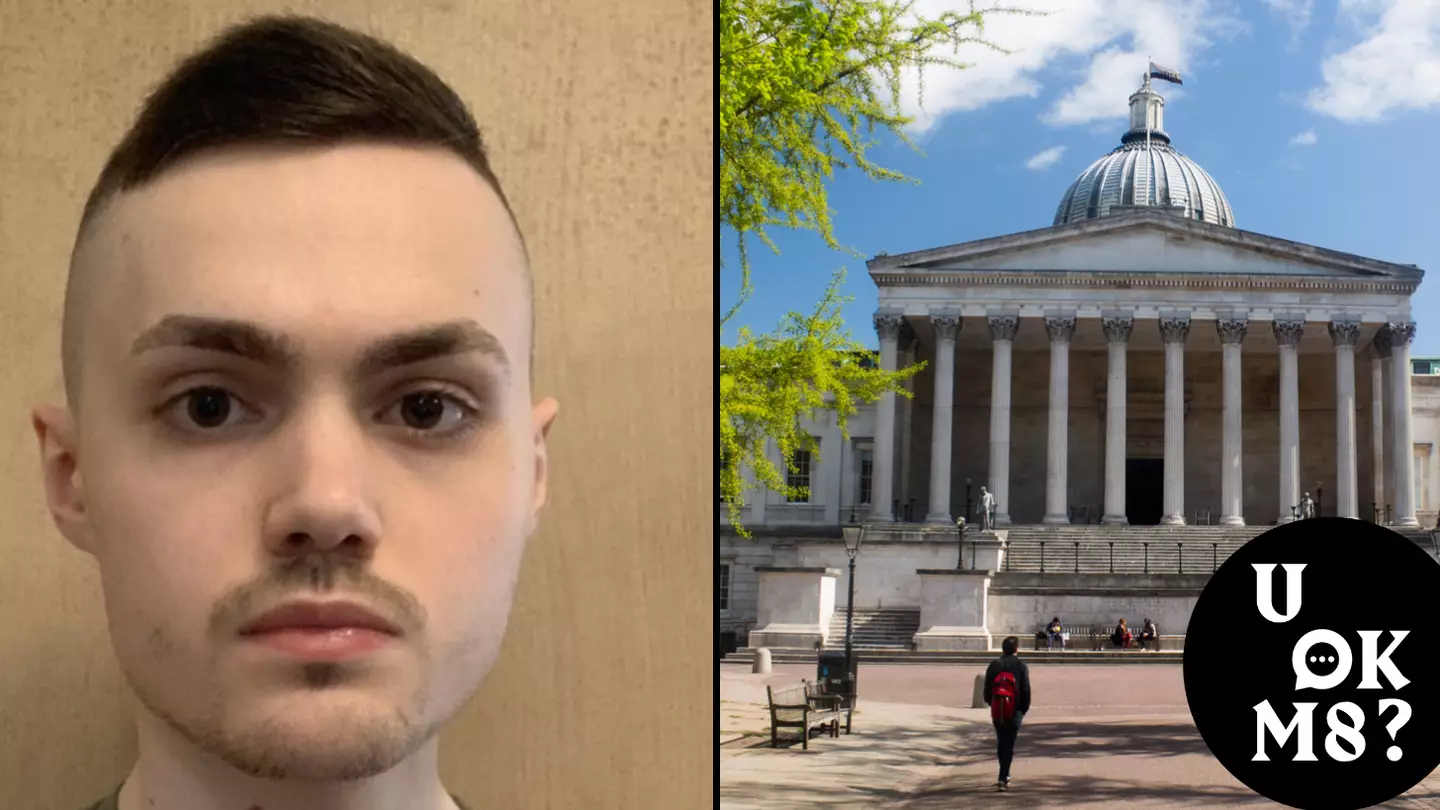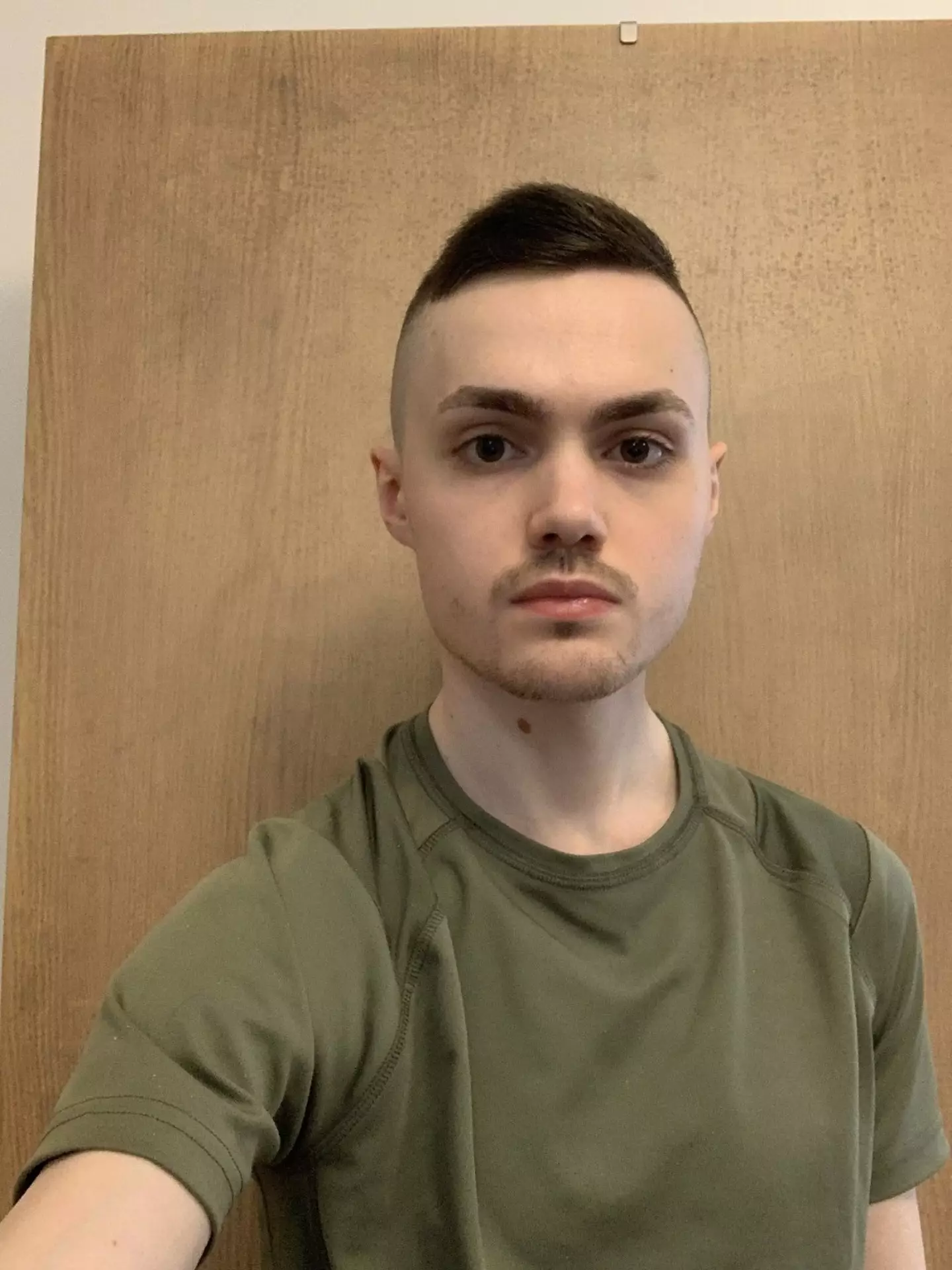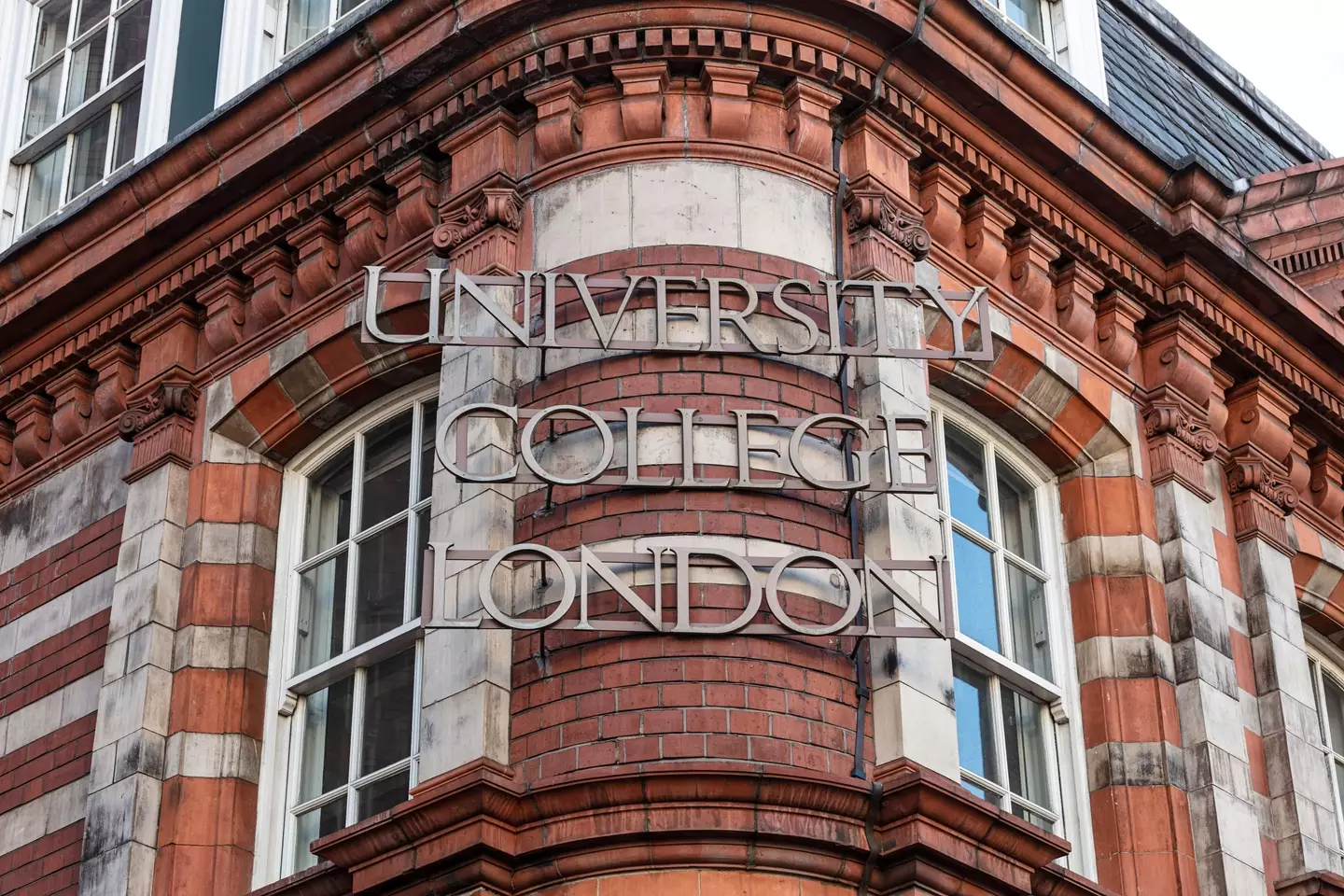
For almost half his life, Charlie has struggled with his body image.
When he was about 13, he was diagnosed with body dysmorphic disorder, a condition that causes a person to overanalyse their appearance, picking out perceived flaws that others can't see.
But while he was able to get support from the Child and Adolescent Mental Health Service (CAMHS), things changed when he went to university, moving away from his family.
Speaking to LADbible, Charlie, from London, says that his condition deteriorated when he moved to Sussex in September 2018.
Advert
"I got to uni and I guess I became a lot more isolated, because I'd turned 18, so I wasn't receiving help anymore," he tells us.
"And I started having more time on my hands to think and worry about food, and it was quite a gradual process while being at uni, I just progressively started eating less and less."
Charlie, now 23, says he had always struggled to make friends due to a number of mental health complications, and removed himself from social interaction.
"I never went out at uni or anything," he says. "So I was very isolated. And so I would get away with a lot of this stuff, and I wasn't advertising to anyone that had an eating disorder."

Even when he tried to get help from an eating disorder service at uni, Charlie says it was a battle.
He recalls: "Although they said my weight was in the anorexic range, they wouldn't give me a diagnosis at first because I had a lot of other complications going, I'm also autistic and have obsessive-compulsive disorder, and all that stuff sort of fell into my eating.
"I didn't let other people know that I had problems and I didn't really believe that myself, I guess."
Charlie's condition really spiralled out of control, however, when he graduated in 2021 and enrolled on a Master's course at University College London.
With the workload increasing, and no longer having the relative safety of the campus set up, he says his mental health dipped and his condition drastically deteriorated.
Over the course of the year, his weight plummeted, and he tried desperately to get help.
But again, he found it almost impossible to get the support he urgently needed, and was forced to go to Orri, a private treatment service in London, and to drop out of uni.
"This was at the end of September last year, so two months or so after I made a consultation to my GP and asked for a referral," Charlie recalls.

"I had an assessment in early to mid-September with an NHS service, and they said they would contact me again within a week with a treatment plan. That didn't happen. And it turns out, the guy who assessed me actually left the service or quit his job.
"I ended up needing to get private treatment instead of something on the NHS because it was basically taking too long and I didn't show any signs of improving. I felt like I was in a kind of purgatory.
"It wasn't until late October, that the NHS got back in touch with me, but by then I was already going down the private route."
After being rushed to an inpatient care facility, Charlie spent the next month recovering, following strict diet plans and going to regular counselling and therapy sessions to get his weight back up to a healthy level and help realign his connection with food.
"It was when I was in inpatient treatment that they did an assessment of me and put anorexia nervosa on paper," he says.
"It was definitely important in recognising that I had a problem to actually be able to name it."
And though meeting other people who were going through similar journeys was a useful part of his recovery, Charlie says he felt like he didn't belong.
"I didn't love the whole group aspects at the time," he recalls.
"I sort of got like an imposter syndrome thing going on a lot where I didn't feel like I had it as bad as other people, and I shouldn't really be there."
However, he stuck with it, and after the three-and-a-half weeks were up, Charlie returned as an outpatient five days a week for the next three months.

While he still finds himself slipping into old habits 'every now and then', he's glad he reached for help when he did.
"It's definitely much better to seek help sooner rather than later, because you don't know how soon you're going to get it," he says.
"I was very certain that I needed to make a change. I met a lot of people in treatment, both as impatient and as day a patient that really didn't want to be there, they were there because their parents made them or they were trying to please people close to them.
"It's very important to have concrete goals in mind, knowing what you want to get out of this - it's not something you can do half-a*sed.
"I knew what I wanted to get out of treatment from the start, it p**sed me off how much this was interfering with my life."
Eight months since he was first admitted, Charlie has returned to university and is just about to complete his Master's course.
He says: "I restored my weight back to a healthy BMI, so no longer underweight; that that was probably the most important milestone, progress-wise.
"I've gone back to my Master's course, and I'll be finishing that in a month-and-a-half.
"I do think I'll have a hard time finding a job and having that work-life balance again, but that'll be another important milestone."
Adding: "I'm in a much, much better place than last year, for sure."
UOKM8? is a campaign by LADbible, featuring films and stories that provide advice and inspiration on mental health. Explore more here and don't suffer in silence. Let's talk mental health.
Beat: 0808 801 0677 (Eng) 0808 801 0432 (Scot) 0808 801 0433 (Wal) 0808 801 0434 (NI)
MIND: 0300 123 3393.
Samaritans: 116 123.
CALM: Outside London 0808 802 5858, inside London 0800 58 58 58.
Topics: Mental Health, UK News, UOKM8